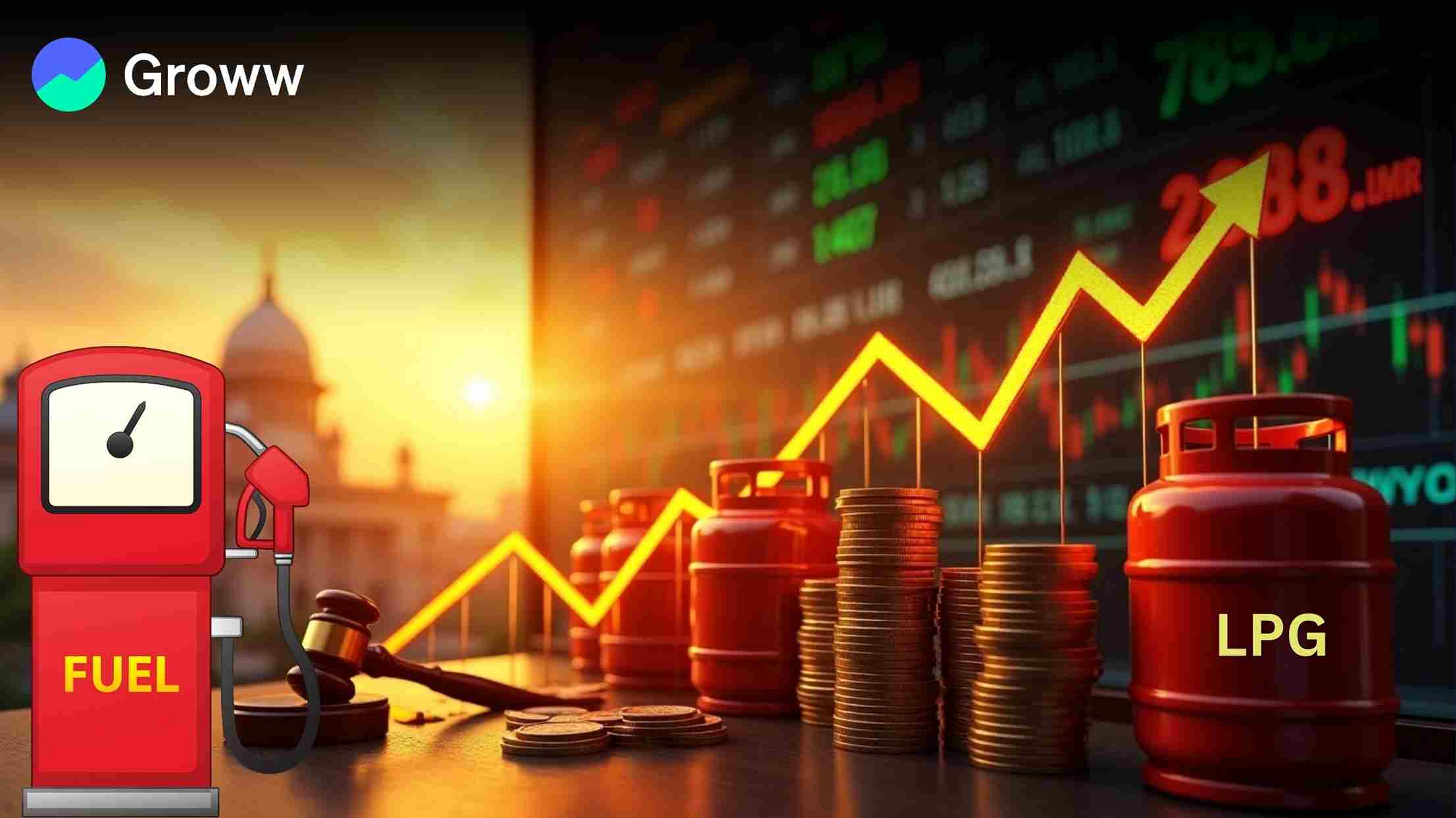OMC Stocks Rebound Up to 3% as Govt Hikes LPG Prices, Excise Duty on Fuel

Shares of state-owned oil marketing companies (OMCs), including Bharat Petroleum Corporation (BPCL), Hindustan Petroleum Corporation (HPCL), and Indian Oil Corporation (IOCL), experienced gains of up to 3 per cent on the BSE in Tuesday’s intra-day trade. This followed a period of decline in the previous two trading days, where these stocks were down in the range of 2% to 3%.
LPG Cylinder Price Hike of ₹50
The Indian government has increased the price of a 14.2 kg liquefied petroleum gas (LPG) cylinder by ₹50. Consequently, the new price of a 14.2kg LPG cylinder will be ₹853. For the beneficiaries of the Pradhan Mantri Ujjwala Yojana (PMUY), the price will be ₹653. This ₹50 increase per domestic LPG cylinder is expected to reduce LPG under-recovery from approximately ₹189/cylinder to around ₹144/cylinder, assuming stable propane prices.
Excise Duty Increase of ₹2/Litre on Petrol and Diesel
Simultaneously, the government has raised the excise duty on petrol and diesel by ₹2 per litre. The Oil Minister has stated that the burden of this excise duty increase will not be passed on to consumers; instead, OMCs will absorb this cost.
Impact of Excise Duty on OMCs' Marketing Margins
The increase in excise duty will affect OMCs’ marketing margins. However, Motilal Oswal Financial Services does not anticipate any impact on its earnings estimates for these companies. This is because the current marketing margins, averaging above approximately ₹10/liter, are significantly higher than the brokerage firm's assumption of ₹3.3/liter for both Motor Spirit (Petrol) and High Speed Diesel.
HSBC Global Research's Assessment of Potential Profit Reduction
Analysts at HSBC Global Research project that this duty could potentially shave off ₹31,200 crore of potential annualised profit before tax. This translates to a reduction in Earnings Per Share (EPS) of ₹7.5/17.2/28.6 per share for IOC, BPCL, and HPCL, respectively. In other words, a ₹2/litre increase in excise duty effectively negates a USD4/b worth of oil price benefit for petrol and diesel. As a countermeasure, the oil ministry announced the ₹50/cylinder LPG price hike, which is expected to add ₹11,300 crore and partially recover the anticipated loss from lower oil profits.
Brokerage Firms' Perspective on Fiscal Space and Investor Sentiment
While one brokerage firm believes this intervention aims to create fiscal space for the government amidst an uncertain environment due to recent tariffs, it also notes that this move could create negative investor sentiment. Furthermore, any adverse effects on earnings resulting from oil price increases and INR depreciation will be harder for OMCs to pass on, thereby impacting their earnings. The brokerage firm highlights the difficulty in forecasting earnings due to volatility in multiple macro factors and uncertainty in pump price policy. Consequently, they prefer using price-to-book estimates for valuation, assuming the government will allow OMCs to achieve reasonable returns across different economic conditions.
Impact of INR Depreciation and Brent Price Change on Margins
Analysts have stated that a depreciation of the Indian Rupee (INR) by ₹1/USD impacts OMCs' margins by ₹0.5/litre. Similarly, a change in the Brent crude oil price of USD1/bbl affects margins by ₹0.5/litre. These fluctuations in INR and Brent price can lead to an EPS impact of ₹1.5/4.0/6.8 per share for IOC, BPCL, and HPCL, respectively.
Disclaimer: This news is solely for educational purposes. The securities/investments quoted here are not recommendatory.
To read the RA disclaimer, please click here